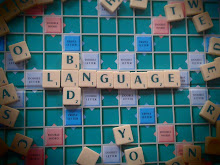The future of novels is apparently here. With the rise of Iphones, Ipod touches and Ipads, as well as people looking into moving publishing into the next generation, it seems the words on everyone's lips are 'how do we make reading an interactive experience?'
Ebooks are the industries first attempt at this, with the Kindle and Ipad especially highlighting just how interesting these things can be. Both can show basic functions, say for example a digital book with a touch screen so you can turn pages. Text can be resized and background colours can be changed to make it easier to read. This is fairly standard, and for most would be considered pretty satisfactory.
But then a book like this comes along and shows everyone just how a digital book should be done. With smart physical effects moving scenary and developing aspects of the story in stunning high definition, this is a must have app for the Ipad.
But that's just as far as things are going at the moment. What I'm interested in is the future.
Let's take a look at a some trends in literature, and just how these can be worked into apps, to make interactive literature an essential part of the reading experience.
Teenage fiction, and to be honest, young adult fiction is predominately dominated these days by series of books. Harry Potter, Twilight, True Blood, the Discworld and even to an extent, series such as James Pattersons detective novels. These books all have shared universes, filled with locations and characters. They have rules and mythologies. Harry Potter even has textbooks. What if there was an app for those universes. So whilst you're reading the text you can touch an image or link on the screen and be whisked away to some other information. So, for example you're reading a chapter of Harry Potter where he's in a potions class. How about the image behind the text is of the classroom, or a desk. You can click on a textbook and be taken to a replica potions book, complete with spells, or how about clicking on an image of Snape at the head of the class and be taken to a profile of his character, biographical information etc...and then, with another click on there, get taken to a family tree-esque diagram where you can see how his character fits in with the rest of the cast.
Think about how this could apply to some of your favourite books? Imagine a Discworld series where the footnotes are all links to other information, and a map of the Discworld was readily available. Especially in terms of fantasy and sci-fi - the cornerstones of world building and fanbases that eat up continuity, this could be the future of those franchises.
Augmented reality apps are another option. These can already be found on Iphones and Ipads and look a little like this. An extra layer of reality viewed through the camera, recognising distance and location. There's a definite market for this in terms of literature. I point you to the brilliant Rainy City Stories, who have on their website a map of Manchester, along with short stories and poetry about specific locations. But what if those locations could be viewed through an Iphones camera, and then when you reach them, it triggers an audio version of a poem or story, or even just brings up the story alongside the camera. Applying location specific literature to applications that deal in location specifics can only enhance the literature. There are already books out there that try to deal with this aspect, for instance Lyra's Oxford or Ian Rankin's Edinburgh. I could see the use of an app that shows locations featured in the novels, or even direct you along the path of your favourite novels.
Anyone have any other ideas for making literature more interactive?
My favourite films of 2025. Part nine: 25-1
4 days ago




